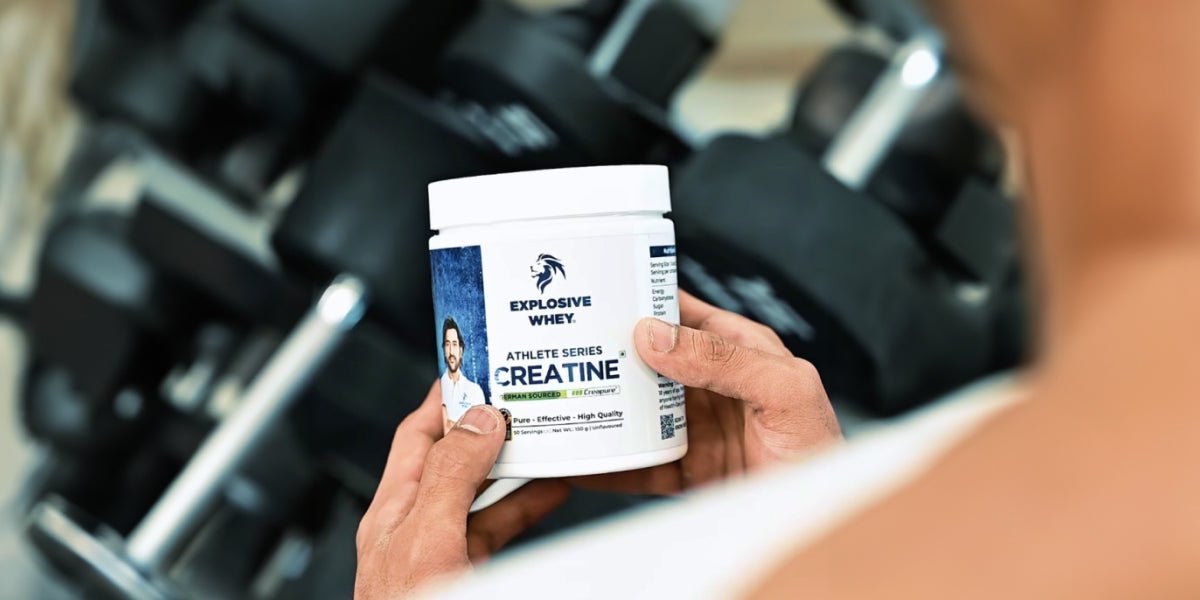In a world that’s increasingly mindful of health and sustainability, plant protein has emerged as a nutrient-rich alternative to traditional protein sources. From enhancing muscle recovery to supporting overall health, plant protein is redefining how we meet our nutritional needs while minimizing our carbon footprint.
Nutrient-Packed Plant Protein for Sustainable Living
Plant protein supports a healthy and environment-friendly lifestyle, proving that adopting healthy eating habits is possible. It is rich in vitamins and minerals and prepared sustainably, meaning it is better than animal proteins. Whether you are interested in the growth in muscle mass or the fight against the climate crisis, plant protein is a bonus.
What is Plant Protein?
Plant protein is derived from sources like peas, lentils, quinoa, chia seeds, and soy. Unlike animal-based proteins, which come from meat, dairy, or eggs, plant proteins are obtained from natural plant sources. These proteins provide essential amino acids, fiber, vitamins, and minerals, making them an excellent addition to any balanced diet.
Why Choose Plant Protein Over Animal Protein?

Opting for plant-based protein offers a nutrient-dense alternative that supports better health while being more sustainable for the planet. Plant proteins are often rich in fiber, vitamins, and minerals, promoting overall wellness.
Environmental Impact
Producing plant-based protein has a significantly smaller environmental impact compared to animal protein. It requires less water, land, and energy, leading to lower greenhouse gas emissions and making it a more sustainable option.
Ethical Considerations
The reduced resource demands of plant proteins make them a responsible choice, minimizing environmental strain. For those prioritizing ethical eating, plant protein provides a compassionate alternative to animal sources.
Digestibility and Absorption
Plant proteins are generally easier to digest and often come with added enzymes to improve absorption. This ease of digestion helps reduce bloating, making plant proteins a gentler option for many people.
Lower Risk of Chronic Diseases
Plant-based protein sources have also been linked to a decreased risk of chronic diseases, such as heart disease, diabetes, and cancer. Their lower saturated fat content and high fiber levels make them a heart-friendly option.
Variety in Protein Sources
Plant proteins, including legumes, grains, seeds, and vegetables, offer a diverse array of choices for creating nutritious meals. This variety not only keeps your diet interesting but also ensures a broad spectrum of essential nutrients.
The Nutritional Benefits of Plant Protein

Plant protein provides a wealth of essential nutrients and it has all kinds of healthy benefits for your health & athleticism. This full-spectrum protein source contains all the necessary amino acids, and micronutrients and synthesizes muscle growth or recovery immune system in the body.
Muscle Building and Recovery
It contains all the essential amino acids which are useful for workout recovery. They enable muscle repair as well as rebuilding, which is essential in allowing athletes to step up their fitness game.Supports Immune Health
These protein products are enriched with various vitamins, minerals as well as antioxidants that inhibit immunity. They allow the body to fight off illnesses and diseases.
Promotes Heart Health
Plant-based proteins are also low in cholesterol and saturated fats which help with overall heart health. They can reduce the risk of heart disease by lowering LDL cholesterol levels.
Supports Bone Health
Nuts and seeds, being plant proteins, are a good source of calcium and magnesium. Together, these nutrients support skeletal health and enhance bone density. Plant protein-rich diets can promote lifelong bone strength.
Improves Mental Clarity
Cognitive development is aided by omega-3 fatty acids found in some plant proteins. These substances can help enhance brain performance, bringing about increased mental clarity and focus.
Incorporating Plant-Based Protein into Your Diet

Incorporating plant-based protein powder, like the Elite Series Plant Protein, into these meals can enhance their protein content further, making it easier to meet your daily protein needs. Here’s how you can seamlessly add it to each dish:
Dish 1: Oatmeal with Nuts and Seeds
Add a scoop of Elite Series Plant Protein to your oatmeal along with chia seeds, almonds, and sunflower seeds. This creates a fiber and protein-packed breakfast that’s also rich in healthy fats and antioxidants.
Dish 2: Quinoa
Incorporate Elite Series Plant Protein into a quinoa and veggie bowl. Prepare the quinoa and vegetables as usual, then dissolve the protein powder in a small amount of water to make a sauce. Pour it over the cooked quinoa and mix well.
Dish 3: Curried Lentil & Sweet Potato
To boost the protein in your curried lentils and sweet potatoes, add a scoop of Elite Series Plant Protein to the dish. Mix the protein powder into coconut milk or vegetable broth, then add it to the curry as it simmers.
Elite Series Plant Protein for Sustainable Living

For those looking for a premium option, the Elite Series Plant Protein stands out for its well-rounded formulation:
Complete Amino Acid Profile
Crafted with a blend of protein sources, this formula provides all essential amino acids. These are crucial for muscle growth and effective recovery. It ensures your body gets complete protein support.
Added Digestive Enzymes
Plant proteins include enzymes that help with easy digestion. Enzymes allow an efficient absorption of nutrients, thereby ensuring that you enjoy maximum benefits from every meal for the body.
No Harmful Additives
This product contains no artificial sweeteners, preservatives, or harmful chemicals. It offers a clean, natural option that supports your health. Enjoy a pure, nourishing protein source without worry.
Supports Vegan and Plant-Based Lifestyles
Meet the daily protein needs of vegans and plant-based dieters with this protein powder. What it gives is greatly beneficial for muscle tissue repair and growth. It is a condensed, tasty option for being in good health and fitness.
Ideal for All Fitness Levels
Our plant-based protein has been formulated to cater to all fitness levels, whether you're just starting or are a seasoned athlete. Our natural protein supplement promotes overall health and well-being.
Switching to plant-based protein helps your body and in a sustainable future. Elite Series Plant Protein is the best blend for those of you looking to perform at your very best health-wise whilst supporting this beautiful planet. Switch over today for a secure and healthy life.
FAQs
Q1) What are the best sources of plant proteins for muscle building?
Top sources include peas, quinoa, chia seeds, and hemp seeds are excellent sources of essential amino acids that aid in muscle repair.
Q2) Can plant-based protein powder replace animal protein powder for athletes?
Yes, plant-based protein powders provide complete proteins and are often easier to digest, making them suitable for athletes. They offer a clean, sustainable option without compromising on muscle recovery or performance.
Q3) How much plant protein should I be consuming daily?
Most adults should consume 0.8 to 1.2 grams of plant protein per kilogram of body weight daily, depending on activity levels. Athletes may require slightly more to support muscle recovery and performance.
Q4) Is plant protein suitable for people with food allergies or intolerances?
Yes, plant protein is generally suitable for people with food allergies or intolerances since it is free from common allergens like dairy and gluten. However, always check ingredient labels for any specific allergens such as soy or nuts.










Leave a comment
This site is protected by hCaptcha and the hCaptcha Privacy Policy and Terms of Service apply.